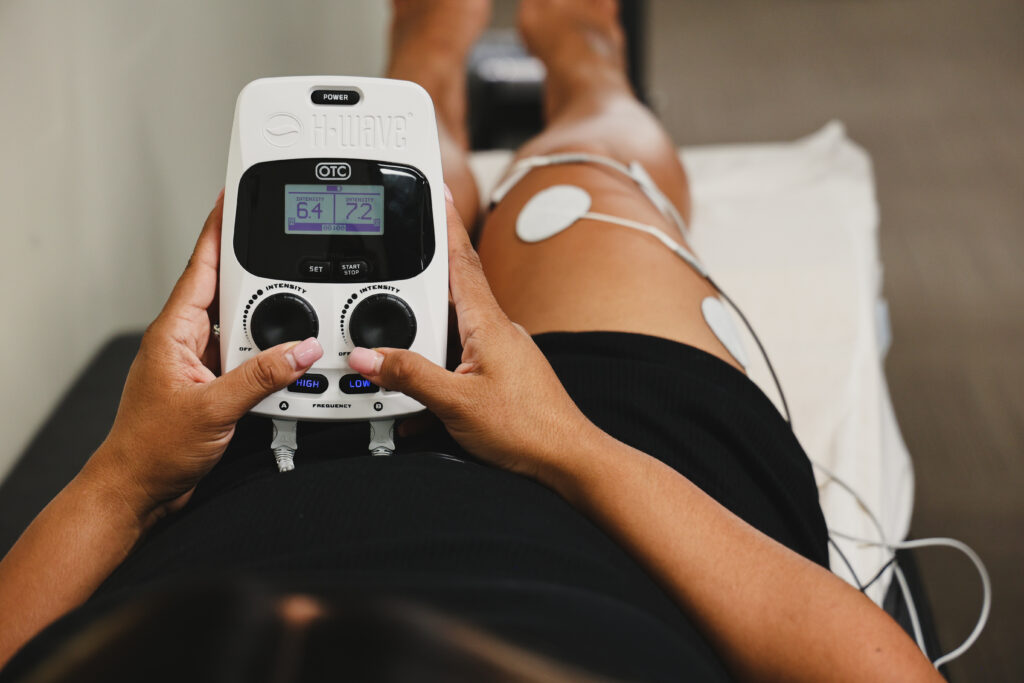How to Manage Post-Op Pain at Night Without Medication | Dr. Kelly Starrett
Nighttime pain after surgery or injury can hit hard and often catches people off guard. During the day, movement helps dampen pain signals. But once we lie down and stop moving, that natural buffer disappears. Dr. Kelly Starrett from The Ready State explains how H-Wave therapy can help manage post-surgical pain overnight—without relying on extra medication.
Why Does Pain Get Worse at Night?
When we’re active, our brain gets movement signals that help override pain. But when we sleep, those signals stop. Pain becomes the loudest input, often waking us up with throbbing or sharp discomfort.
And there’s another issue: swelling. Lying still for hours can lead to fluid buildup in injured tissues. That congestion increases pressure and sensitivity, making pain worse.
The H-Wave Solution for Nighttime Pain
To stay ahead of this cycle, Dr. Kelly Starrett uses H-Wave in “after hours” mode—applying low-level stimulation to keep gentle, non-fatiguing muscle contractions going overnight.
Why it works:
- Maintains movement signals to help block pain
- Promotes circulation to reduce swelling and pressure
- Supports sleep without the side effects of medication
It’s simple: use a single lead on a large muscle group near the injury (like the quad or shoulder), set it to a comfortable level, and let it run while you sleep. The goal isn’t intensity—it’s consistency.
What to Expect
Sleeping with a muscle gently contracting might sound unusual, but most users quickly adapt. The stimulation is subtle, and the benefits are big:
- Less waking from pain
- Reduced morning stiffness
- Lower opioid use
- More restful, restorative sleep
And because H-Wave is designed for long-duration use, it’s ideal for overnight recovery support.
Final Takeaway
Don’t let nighttime pain slow your recovery. With H-Wave, you can stay ahead of the game. If post-surgery or post-injury nights are the hardest part of your recovery, H-Wave after hours might be the answer.
You may also like:
Non-Opioid Postoperative Pain Management Alternatives
Post Operative Care after Orthopedic Surgery | Kelly Starrett, DPT
